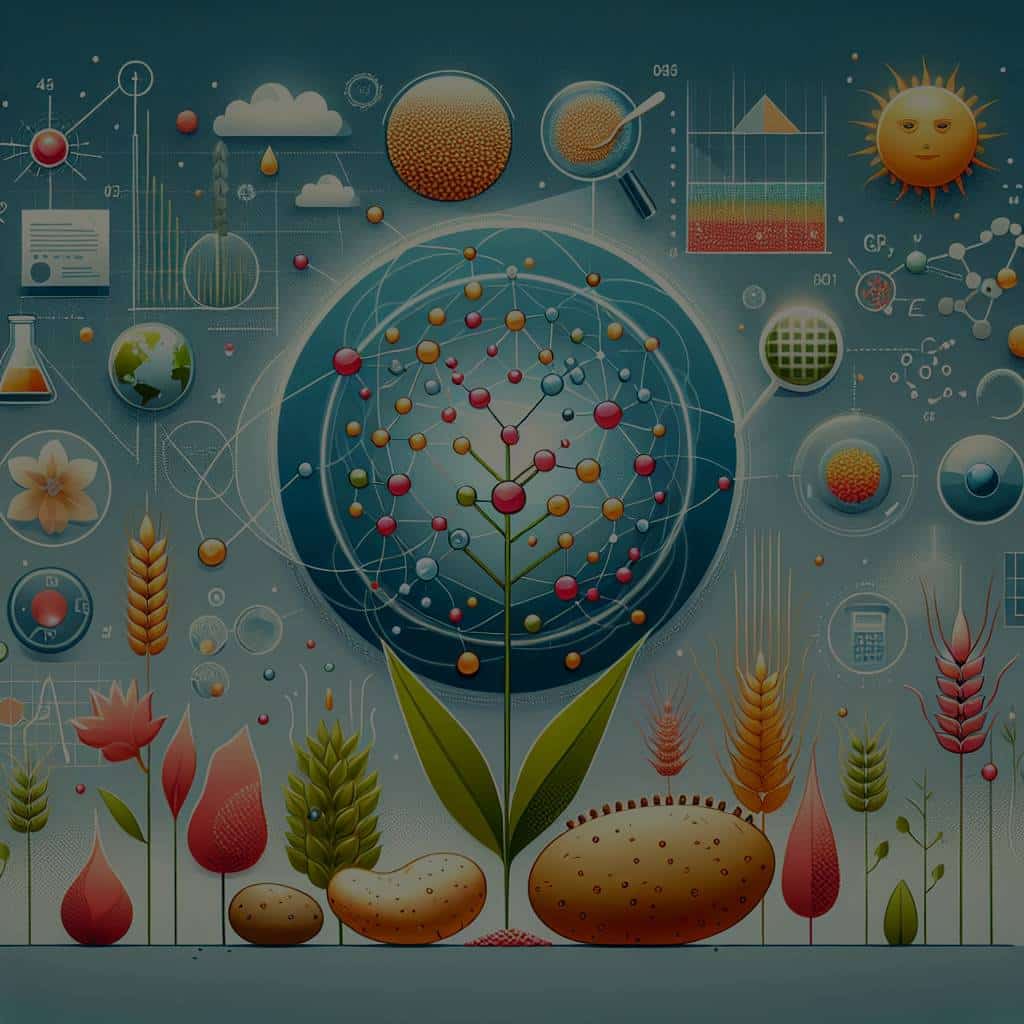What Is the Role of Nanotechnology in Enhancing UK Crop Cultivation?

As we move further into the 21st century, it becomes more apparent that technological advancements play an integral role in our daily lives. One such advancement, nanotechnology, is not only revolutionising industries such as healthcare and electronics, but also agriculture. In the United Kingdom, where sustaining local agriculture is of primary importance, nanotechnology is providing novel avenues to enhance crop cultivation. This article will delve into that very topic, discussing the various ways nanotechnology is moulding the future of UK agriculture.
Nanotechnology: A Brief Overview
Before we delve into the specifics, it is crucial to first understand what nanotechnology entails. Nanotechnology is a field of research and innovation concerned with building ‘things’ – principally materials and devices – on the scale of atoms and molecules. A nanometer is one-billionth of a meter. For comparison, a sheet of paper is about 100,000 nanometers thick.
Also read : How Can UK Small Towns Leverage Tourism for Economic Development?
The scale of nanotechnology is incredibly small, and it is this characteristic that allows for a broad range of applications. Nanotechnology manipulates and controls nanoscale matter, which often exhibits different properties compared to their bulk equivalents. This difference can result in improved or even entirely new properties, such as increased strength, lighter weight, or better chemical reactivity.
Nanotechnology in Agriculture
Nanotechnology holds immense potential in the field of agriculture, providing solutions that could revolutionise food production and address some of the most pressing concerns of our time, such as food security and environmental sustainability.
In the same genre : How Can UK Food Co-ops Benefit from Community-Supported Agriculture (CSA) Models?
One of the most promising applications of nanotechnology in agriculture is in the development of nano-based fertilizers. These fertilizers can significantly increase the efficiency of nutrient uptake by plants, reducing the amount of fertilizer needed and minimising the negative environmental impacts caused by overuse of traditional fertilizers.
For instance, nanoparticles of zinc oxide and copper oxide have been shown to improve plant growth and yield by enhancing nutrient uptake and photosynthesis efficiency. These nanoparticles also exhibit controlled release properties, leading to less frequent application and lower costs.
Nanotechnology in Plant Nutrition and Protection
Apart from fertilizers, nanotechnology is facilitating advancements in plant nutrition and protection. The use of nanoscale carriers for the delivery of nutrients and plant protection agents can result in increased efficiency and reduced environmental impact.
For example, nano-based systems can improve the delivery of nutrients to plants, ensuring that they receive the right amount at the right time. Such systems can also minimise the loss of nutrients to the environment, a common problem with conventional fertilizer application methods.
Additionally, nanotechnology can improve plant protection. Nanoscale carriers can deliver pesticides and other plant protection agents directly to their target, reducing the amount required and minimising environmental contamination.
The Role of Nanotechnology in Soil Health
Soil health is a critical factor in successful crop cultivation. Nanotechnology can play a pivotal role in monitoring and improving soil health, thereby enhancing crop productivity.
Nano-based sensors can provide real-time data on soil conditions, helping farmers make informed decisions about irrigation and fertilization. This can lead to improved efficiency and sustainability in farming practices.
Moreover, nanoparticles can be used to remediate contaminated soils. For example, certain types of nanoparticles can bind to heavy metals in the soil, reducing their bioavailability and toxicity.
The Future of Nanotechnology in UK Agriculture
As we move forward, it’s clear that nanotechnology will continue to play a crucial role in the evolution of UK agriculture. Nanotechnology can provide practical solutions to many of the challenges faced by today’s farmers, from improving plant nutrition and protection to enhancing soil health and remediation.
But it’s not just about the potential benefits. As with any new technology, there are also considerations and challenges that need to be addressed, including safety and regulatory issues. It’s crucial that the development and use of nanotechnology in agriculture is guided by robust scientific research and clear policy frameworks to ensure its benefits are realised while potential risks are managed.
In the UK, scholars and researchers are at the forefront of this work, developing innovative nano-based solutions for agriculture and working to understand their potential impacts and implications. With the support of organisations like Google, which provides tools and resources to support research and innovation in this field, there’s great promise for the future of nanotechnology in UK agriculture.
Nanotechnology in Climate Change Mitigation and Sustainable Agriculture
Climate change is a significant global threat posing myriad challenges to agriculture. Implementing sustainable solutions is paramount to mitigating climate change and securing food security. Enter nanotechnology. By manipulating matter at an atomic level, nanotechnology is offering innovative solutions for sustainable agriculture.
One such solution is the use of oxide nanoparticles to boost crop yield. As discussed earlier, nanoparticles such as zinc oxide and copper oxide can enhance plant growth and yield. These particles can be manipulated to release nutrients into the soil in a controlled manner, allowing plants to absorb just the right amount of nutrients they need. This slow-release mechanism reduces fertilizer overuse, thus curtailing greenhouse gas emissions and soil degradation associated with conventional fertilizers.
Furthermore, nanotechnology can play a pivotal role in managing agricultural waste. For example, carbon nanotubes can convert agricultural waste into biochar, a type of charcoal that improves soil fertility and stores carbon, helping to mitigate climate change.
It’s also worth noting that nanotechnology can contribute to sustainable agriculture by enhancing water use efficiency. Nano-based systems can help retain moisture in the soil, reducing the amount of irrigation water required. Silver nanoparticles, for instance, are being explored for their potential in this area.
Conclusion
As we’ve explored, nanotechnology holds immense potential in transforming UK agriculture. With its ability to enhance crop production, improve soil health, and promote sustainable farming practices, nanotechnology is set to play a key role in addressing food security and environmental sustainability.
Despite the promising prospects, it is essential to approach the adoption of nanotechnology in agriculture with caution. There are still many unknowns about the long-term impacts of nanotechnology on the environment and human health. Therefore, it’s crucial to support ongoing research in this field and develop clear regulatory frameworks.
Leading the way in this regard, UK scholars and researchers, often using resources provided by Google Scholar, are conducting cutting-edge research into the applications and implications of nanotechnology in agriculture. Bold steps are being taken to increase our understanding of this exciting technology, and we are optimistic about the future of nanotechnology in UK agriculture.
As we face the challenges of the 21st century, from climate change to food security, nanotechnology stands as a beacon of innovation, offering practical and efficient solutions for a sustainable future.
